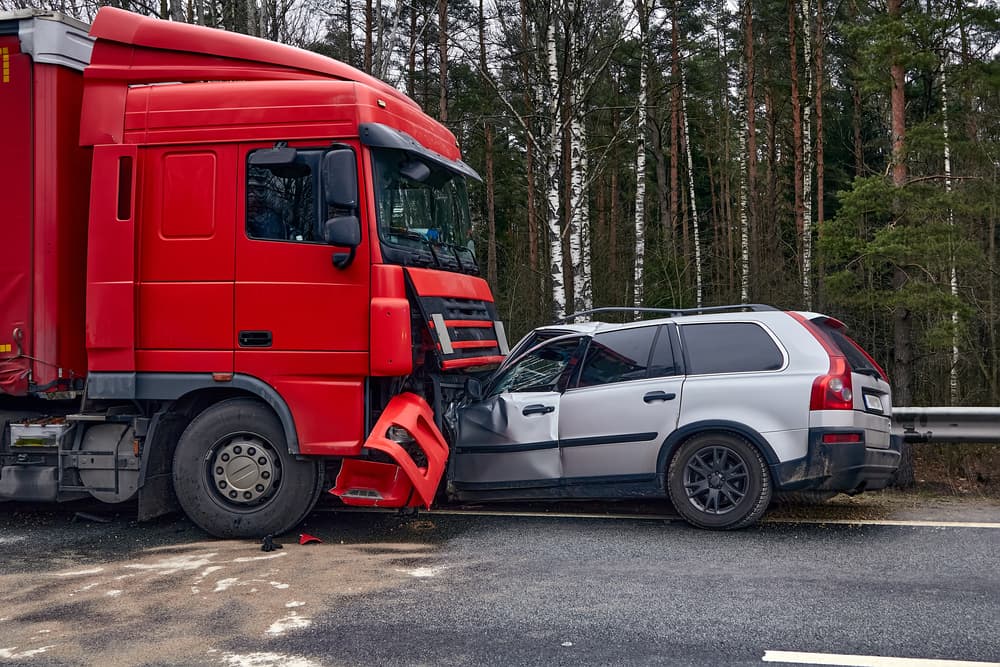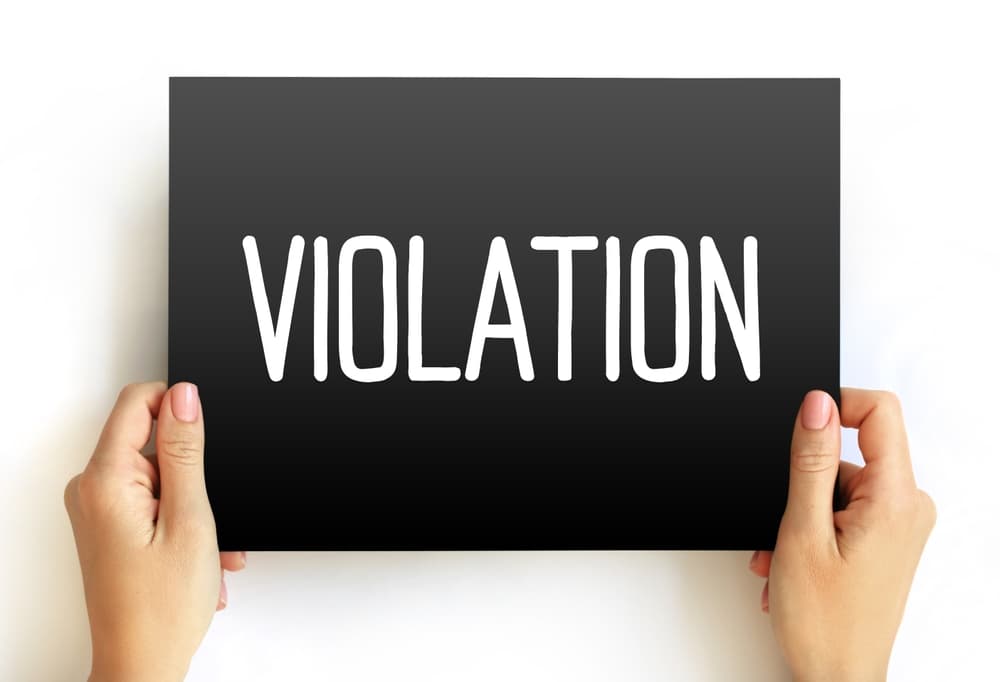Regulations by the Federal Motor Carrier Safety Administration (FMCSA) are in place to keep commercial truck drivers and other roadway drivers safe. However, when truck drivers and trucking companies violate these regulations, very serious accidents can happen which lead to debilitating injuries.
If you sustained injuries in an accident that resulted from an FMCSA violation, you need to have a knowledgeable truck accident attorney on board in your case as soon as possible. Your lawyer can thoroughly investigate the accident circumstances, file a claim with a truck driver or trucking company’s insurer, and pursue the compensation you deserve for your losses.
What Are the Most Important FMCSA Regulations That Truck Drivers and Trucking Companies Must Follow for Safety?
The FMCSA enforces a range of regulations to ensure the safety of truck drivers and other road users. These rules intend to prevent accidents and minimize risks associated with commercial trucking. Some of the most important FMCSA regulations are as follows:
- Hours of Service (HOS) Regulations — The HOS regulations are crucial for preventing driver fatigue, a leading cause of accidents. These rules limit the number of hours a truck driver can be on the road and mandate rest periods. For example, drivers are allowed a maximum of eleven hours of driving after ten consecutive hours off duty. They must also take a thirty-minute break after eight hours of driving. These regulations help ensure that drivers remain alert and capable of operating their vehicles safely.
- Driver Qualification Requirements — To ensure that only qualified individuals operate commercial trucks, the FMCSA sets strict qualification standards. Drivers must possess a valid Commercial Driver’s License (CDL) and meet specific age, language, and medical requirements. They must also have a clean driving record and pass regular physical exams to verify their fitness to drive.
- Vehicle Maintenance and Inspection Standards — Regular maintenance and inspections are essential to keep trucks in safe operating condition. The FMCSA requires trucking companies to conduct routine inspections, maintenance, and repairs. Trucks must undergo pre-trip inspections by drivers and annual inspections by qualified personnel. These regulations help identify and fix mechanical issues before they lead to accidents.
- Cargo Securement Rules — Properly securing cargo is vital for preventing accidents caused by shifting or falling loads. The FMCSA has detailed regulations on how cargo should be loaded, secured, and inspected. These rules cover the use of tie-downs, tarps, and other securement devices to ensure that cargo remains stable during transit.
- Drug and Alcohol Testing — The FMCSA enforces strict drug and alcohol testing requirements to ensure that drivers are not impaired while operating their vehicles. Drivers are subject to pre-employment, random, post-accident, and reasonable suspicion testing. This helps maintain a drug-free and sober workforce, reducing the risk of impaired driving.
- Electronic Logging Devices (ELDs) — ELDs record drivers’ hours of service electronically. These devices ensure compliance with HOS regulations and prevent logbook tampering. ELDs provide accurate records of driving hours, helping to enforce rest periods and prevent fatigue-related accidents.
What Happens When Truck Drivers and Trucking Companies Violate FMCSA Rules and Regulations?

Commercial truck accidents can be catastrophic, especially when truck drivers and trucking companies violate FMCSA rules and regulations. These violations can lead to various types of accidents, each with serious consequences. Here are some of the most common:
- Rear-end Collisions — Rear-end collisions occur when a truck crashes into the back of another vehicle. These accidents often result from violations of FMCSA’s hours of service (HOS) regulations, which limit how long a driver can be on the road without rest. Fatigued drivers have slower reaction times and are more likely to cause rear-end collisions. In addition, distracted driving, such as texting while driving, can lead to these accidents.
- Jackknife Accidents — A jackknife accident happens when the trailer of a truck swings out to form a ninety-degree angle with the cab, resembling a folding pocket knife. This type of accident can occur if the driver brakes suddenly or loses control on a slippery road. Violations of FMCSA’s maintenance regulations, such as poorly maintained brakes or tires, can increase the risk of jackknifing.
- Rollovers — Rollover accidents are particularly dangerous and can occur when a truck tips onto its side or roof. These accidents often result from speeding, sharp turns, or overloading the truck. Violating FMCSA’s weight regulations by carrying too much cargo or improperly securing loads can lead to rollovers. Inadequate driver training and experience can also contribute to these accidents.
- Underride Accidents — Underride accidents occur when a smaller vehicle slides under the side or rear of a truck. These accidents are often fatal for the occupants of the smaller vehicle. FMCSA regulations require trucks to have underride guards to prevent such accidents. If these guards are missing or not properly maintained, the risk of underride accidents increases.
- Blind Spot Accidents — Trucks have large blind spots, known as “no-zones,” where the driver cannot see other vehicles. Accidents can occur when a truck changes lanes or turns without properly checking these blind spots. Violations of FMCSA regulations regarding the use of mirrors and other visibility aids can lead to blind spot accidents.
- Tire Blowouts — A tire blowout can cause a truck driver to lose control, leading to serious accidents. FMCSA regulations mandate regular inspection and maintenance of tires. Ignoring these regulations can result in worn or damaged tires, increasing the likelihood of blowouts.
Common Injuries in Commercial Trucking Accidents
Commercial trucking accidents can cause severe injuries due to the size and weight of the trucks involved. When violations of FMCSA regulations cause these accidents, the injuries can be particularly serious. Some of the most common injuries individuals may suffer include the following:
- Head and Brain Injuries — Head and brain injuries are among the most serious and life-altering injuries in trucking accidents. Victims may experience concussions, traumatic brain injuries (TBIs), or skull fractures. These injuries can lead to long-term cognitive issues, memory loss, and even permanent disability. Such injuries often result from the force of impact during a collision.
- Spinal Cord Injuries — Spinal cord injuries can cause partial or complete paralysis. Damage to the spinal cord can disrupt the transmission of signals between the brain and the rest of the body. Victims may suffer from paraplegia (paralysis of the lower body) or quadriplegia (paralysis of all four limbs). These injuries often occur in high-impact collisions where the spine is subjected to severe trauma.
- Broken Bones and Fractures — The immense force of a trucking accident can lead to broken bones and fractures. Commonly affected areas include the arms, legs, ribs, and pelvis. These injuries may require surgeries, long-term immobilization, and extensive physical therapy to heal properly. Multiple fractures can lead to significant pain and long recovery periods.
- Internal Injuries — Internal injuries, such as damage to organs, internal bleeding, and punctured lungs, are common in severe accidents. These injuries are particularly dangerous because they may not be immediately visible. Prompt medical attention is crucial to diagnose and treat internal injuries, which can be life-threatening if left untreated.
- Whiplash and Neck Injuries — Whiplash and other neck injuries are common in rear-end collisions where the force of the impact causes the head to jerk violently. Symptoms include neck pain, stiffness, and reduced range of motion. Although often less severe than other injuries, whiplash can cause chronic pain and discomfort.
- Burns and Lacerations — In accidents involving fuel spills or fires, victims can suffer from burns, which range from minor to severe. Lacerations, or deep cuts, can result from broken glass, twisted metal, and other debris. These injuries can cause significant pain, scarring, and the risk of infection.
How to Prove That an FMCSA Violation Occurred

Proving that a truck driver or trucking company violated an FMCSA regulation involves several key steps. These steps include gathering evidence and presenting a compelling case. Here is how you can legally establish such a violation:
- Legal Representation — Engage a lawyer with experience in commercial trucking accidents and FMCSA regulations. They can help you navigate the legal process, gather the right evidence, and build a strong case. An experienced lawyer can effectively argue that the truck driver or company violated FMCSA regulations, supporting your claim for compensation or other legal remedies.
- Gathering Evidence — Gathering evidence is crucial to proving a violation. You may need the following:
- Driver Logs — Truck drivers must maintain accurate logs of their driving hours. These logs can show if a driver exceeded the legal driving hours, thereby violating HOS regulations.
- Electronic Logging Devices (ELDs) — Many trucks are equipped with ELDs that automatically record driving hours. These devices provide reliable data on the driver’s activity.
- Maintenance Records — If you suspect a maintenance-related violation, obtain the truck’s maintenance logs. These records can reveal whether the company properly maintained the truck as required by FMCSA standards.
- Witness Statements — Statements from witnesses, including other drivers, passengers, or bystanders, can support your claim. Witnesses may provide insights into the driver’s behavior or the condition of the truck.
- Accident Reports — Police reports from the accident scene can be critical. They often contain observations from law enforcement officers about possible regulatory violations.
- Driver’s Qualification File — This file includes the driver’s employment application, driving record, medical certificates, and other credentials. It can show if the driver met FMCSA requirements.
- Analyzing the Evidence — After obtaining the evidence, your attorney can analyze it to identify any discrepancies or violations. They will compare the driver’s logs or ELD data against FMCSA’s HOS regulations. They can also check maintenance records against required maintenance schedules and look for any signs of falsification or tampering with records, which itself is a serious violation.
- Consulting Experts — Sometimes, it helps to consult experts who understand FMCSA regulations and commercial trucking operations. Experts can provide insights and testimony that strengthen your case. They can also explain technical details and confirm whether the evidence supports a violation.
By meticulously gathering and analyzing evidence, consulting experts, and working with a knowledgeable lawyer, you can legally prove that a truck driver or trucking company violated FMCSA regulations. This can be essential for holding them accountable and securing justice.
Recovering Monetary Compensation for Injuries in a Trucking Accident

In a commercial trucking accident, compensation can fall into three main categories: economic damages, non-economic damages, and punitive damages. Each type of compensation addresses different aspects of the losses and suffering that the victims may experience.
Economic Damages
Economic damages refer to the financial losses that result directly from the accident. These are tangible costs that can be calculated and documented. They include:
- Medical Expenses — This covers the cost of medical treatment for injuries sustained in the accident, including hospital bills, surgery costs, medication, physical therapy, and future medical care if ongoing treatment is needed.
- Lost Earnings — If the victim is unable to work due to injuries, they can recover compensation for the income lost during the recovery period. This can also extend to future lost earnings if the injuries result in a long-term or permanent inability to work.
- Property Damage — This includes the cost of repairing or replacing any property damaged in the accident, such as the victim’s vehicle and any personal belongings inside it.
- Rehabilitation Costs — If the victim requires rehabilitation services to recover fully from their injuries, these costs are also compensable.
Non-economic Damages
Non-economic damages are more subjective and compensate for the nonfinancial repercussions of the accident on the victim’s life. These damages are harder to quantify but are just as important. They include:
- Pain and Suffering— This compensation covers the physical pain and emotional distress that the victim experiences as a result of the accident and their injuries. The amount awarded can vary greatly depending on the severity of the injuries and the effects on the victim’s daily life.
- Emotional Stress — This addresses the psychological effects of the accident, such as anxiety, depression, or post-traumatic stress disorder (PTSD).
- Loss of Enjoyment of Life — If the injuries result in a decreased ability to enjoy everyday activities and hobbies, the victim can receive compensation for this loss.
- Loss of Consortium — This refers to the effects of the victim’s injuries on their relationship with their spouse or family, including loss of companionship, support, and affection.
Punitive Damages
Punitive damages are different from economic and non-economic damages because they are not intended to compensate the victim for a specific loss. Instead, they are designed to punish the at-fault party for particularly reckless or egregious behavior and to deter similar conduct in the future. A victim may receive compensation for punitive damages in cases where the truck driver or trucking company acted with gross negligence, willful misconduct, or a blatant disregard for safety.
Consult an Experienced Trucking Accident Lawyer Today
If you recently suffered injuries in a truck collision that resulted from one or more FMCSA violations, you should talk with a skilled truck accident attorney in your area right away. Your personal injury lawyer can promptly evaluate your case and take the necessary steps to obtain the justice and compensation you deserve.
